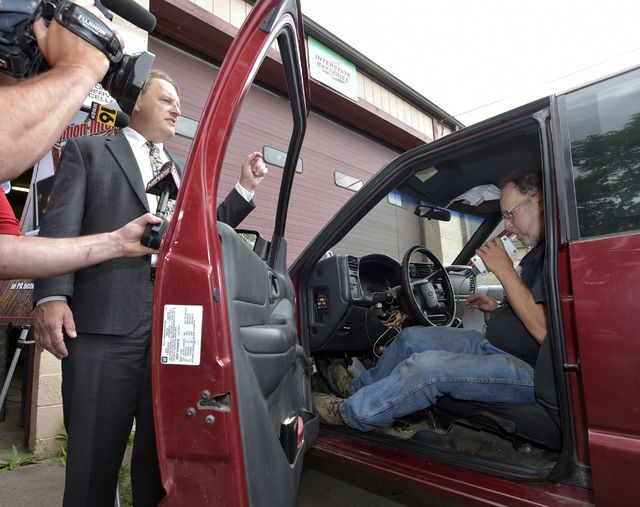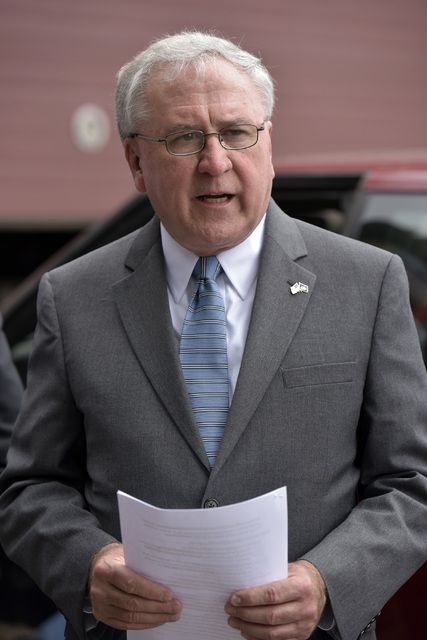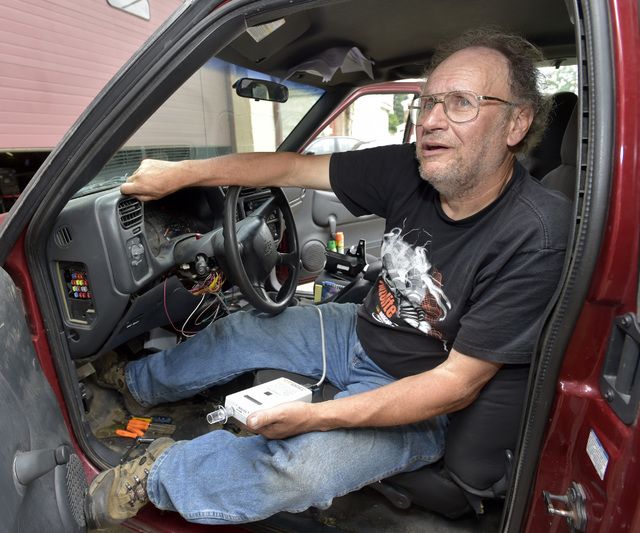Click here to subscribe today or Login.
HANOVER TWP. — Chris Demko made the trip from Lancaster County because he knows how important it is to significantly reduce drunk driving.
Demko was at Kaschak’s Foreign & American Auto, 115 Oxford St. Hanover Township, to show support for the state’s new ignition interlock law — Act 33 of 2016 — including how the law, which will take effect in 15 months, will be implemented.
Demko’s daughter, Meridith, was killed by a repeat DUI offender on July 8, 2014. She was 18.
“I lost my daughter, a college-bound high school graduate, to a repeat DUI offender driving on a suspended license, high on heroin and drunk,” Demko said. “He killed her on a beautiful sunny afternoon about one mile from our house when she was driving home from the local YMCA.”
The law, passed in May after six years of effort and advocacy, requires most first-time offenders of Driving Under the Influence (DUI) to have ignition interlocks installed on their vehicles for at least one year.
“This is a historic bill,” said the bill’s main sponsor, Republican state Sen. John Rafferty. “It is intended to reduce repeat DUIs, decrease highway crashes and save lives, while allowing drivers to use their vehicles for work and other purposes in a controlled setting.”
The new law will require convicted drunk drivers with illegal blood alcohol content (BAC) of .10 or greater to use ignition interlocks for at least 12 months for first-time offender.
“Statistics in states that have similar laws, clearly show the implementation if ignition interlock devices for first-time offenders significantly reduce drunk driving fatalities,” Rafferty said. “The families of DUI victims who have worked so hard for six years to get this bill through the legislature, should be proud that they have done something that will save lives and prevent needless tragedies.”
Rafferty said that according to statistics compiled by Mothers Against Drunk Driving, nearly two million drunk-driving attempts have been stopped with ignition interlock devices.
Brad Fralick, director of government relations for Des Moines, Iowa-based Intoxalock, which manufactures the devices, said they cost customers between $80 and $120, plus $70 per months to lease.
Kaschak said he has installed more than 200 of the devices since 2010. He said it takes between one and three hours to install a device, depending on the vehicle.
Demko and his wife helped to form PA-PAID — Pennsylvania Parents Against Impaired Driving — to advocate for DUI reform. Demko said interlock devices have already prevented more than 78,000 drivers with multiple DUI convictions from driving impaired.
Demko cited the 2015 death of Paula Jones, who was jogging around Harveys Lake when she was struck by a repeat DUI offender.
“As these tragedies continue to occur far too often, I would ask everyone to contact your legislators and let them know that they need to stay focused on DUI reform,” Demko said. “This law will save lives in the future and prevent countless parents from having to experience the death of their child, which is the worst thing that can happen to any parent.”








